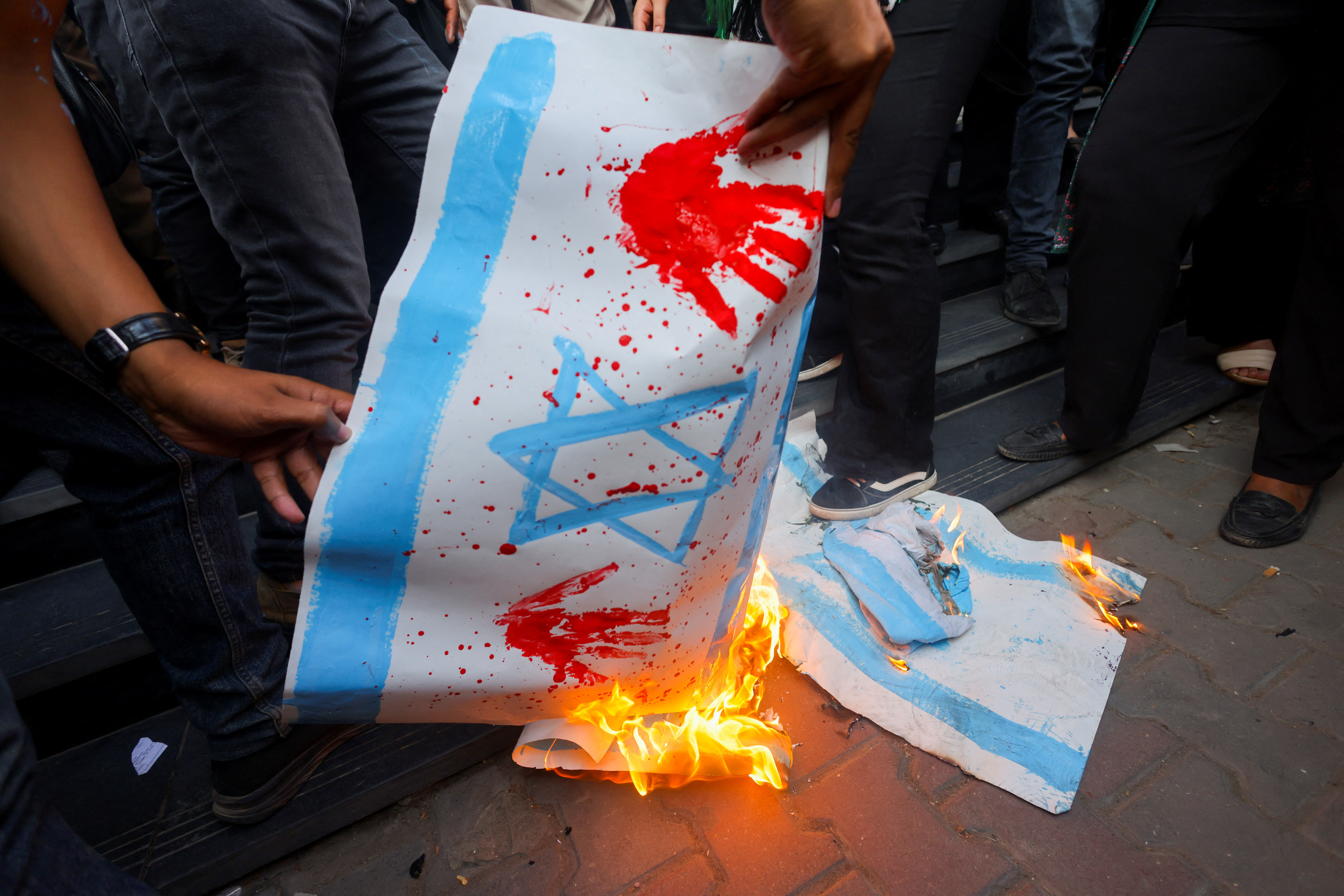At 6:59 p.m. on Tuesday evening, an explosion shook Al-Ahli Arab Hospital in Gaza City. Casualties were reported. Images started circulating of a large fire and pandemonium inside the hospital compound.
Within minutes, the Hamas-run Gaza Health Ministry announced that the hospital had been targeted by an Israeli airstrike and hundreds had been killed.
And many of our colleagues in the international media ate it up.
“Israeli strike kills hundreds in hospital, Palestinians say,” reported The New York Times. “The Gaza Health Ministry says at least 500 people killed in an explosion at a hospital that it says was caused by an Israeli airstrike,” announced the Associated Press. The presumption of Israeli guilt was swift and near-absolute, broadcast to hundreds of millions around the world.
Arab and Muslim leaders issued scathing condemnations of Israel. Jordan’s King Abdullah II decried the “ugly massacre perpetrated by Israel against innocent civilians”; Turkish President Recep Tayyip Erdoğan slammed “the latest example of Israel’s attacks devoid of the most basic human values.” The Jordanian government called off a planned summit between US President Joe Biden and the leaders of Jordan, Egypt, and the Palestinian Authority.
Crowds massed outside Israeli embassies and set Israeli flags aflame.
Israel, for its part, responded with caution, with the IDF saying it was looking into the reports.
<br><br>The responsibility of accurate journalism<br><br>
Here at the Post, we received the reports early on and posted that an explosion had taken place at the hospital and that it had happened concurrently with a barrage of rockets targeting Israeli cities and towns.
We did not parrot the claims of an Israeli airstrike – as it turns out, with good reason.
At 10:08 p.m., the IDF announced that intelligence information indicated that the explosion was caused by a Palestinian Islamic Jihad rocket that had misfired.
Since then, the evidence of Israeli inculpability has mounted. Footage of the skies over Gaza in the moments before the incident shows several rockets being launched in unison, with one separating from the rest and landing in Gaza, causing an explosion. The IDF revealed an intercepted conversation between two Hamas terror operatives confirming that it was an Islamic Jihad rocket that had hit the site. And both photos and drone footage from the site show limited damage that is plainly inconsistent with the results of an Israeli airstrike.
There are several lessons here for our media colleagues.
The first is that no information released by the Gaza Health Ministry should be presumed true; in fact, it should be regarded as highly suspect. That’s because that ministry – like every other government agency in Gaza – is controlled entirely by Hamas and is utilized to advance its murderous agenda. In this case, Israeli officials say, Hamas knew immediately that it was a Palestinian rocket that had hit the hospital but it nevertheless fabricated an Israeli airstrike in order to smear Israel.
The second is that, in the fog of war, journalists must take extraordinary care in how they report events on the ground. What appears to be the story often is not, and misreporting an event as consequential as the deaths of a large number of civilians at a hospital exposes reporters to charges of journalistic malpractice.
But perhaps the most important lesson here is that Israel and Hamas are not on equal moral footing.
Israel is a liberal democracy governed by the rule of law; Hamas is an Islamist terrorist organization with an openly antisemitic and genocidal agenda. Israel protects civilians and considers the loss of civilian life on either side to be an operational failure; Hamas targets civilians and considers the loss of civilian life on either side to be an operational success. Israel takes seriously its commitment to report the truth and is held accountable by a vibrant and free press; Hamas openly and brazenly lies and tightly controls the flow of information from Gaza.
Journalists and media organizations wield enormous power in the global conversation and they bear tremendous responsibility to get the story right. Many have egg on their faces because of how they reported the incident at the Gaza hospital. They should have the integrity to apologize to their readers – and commit to doing better.

